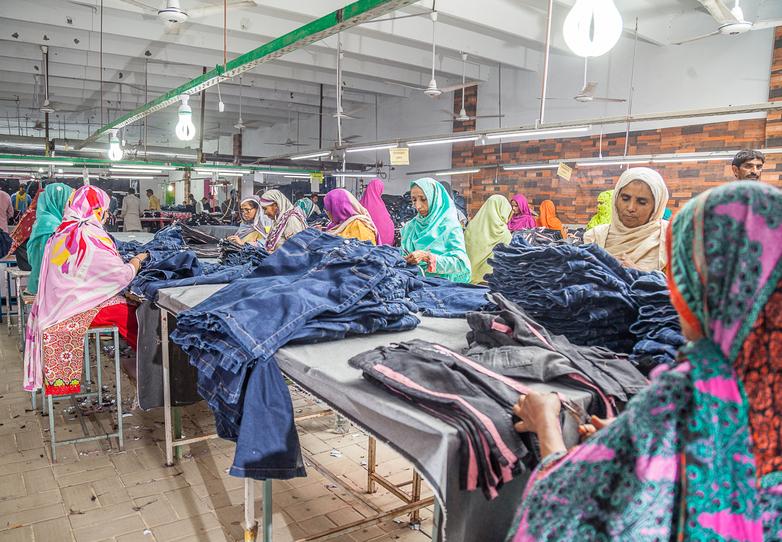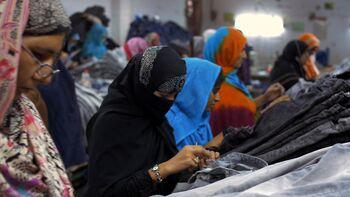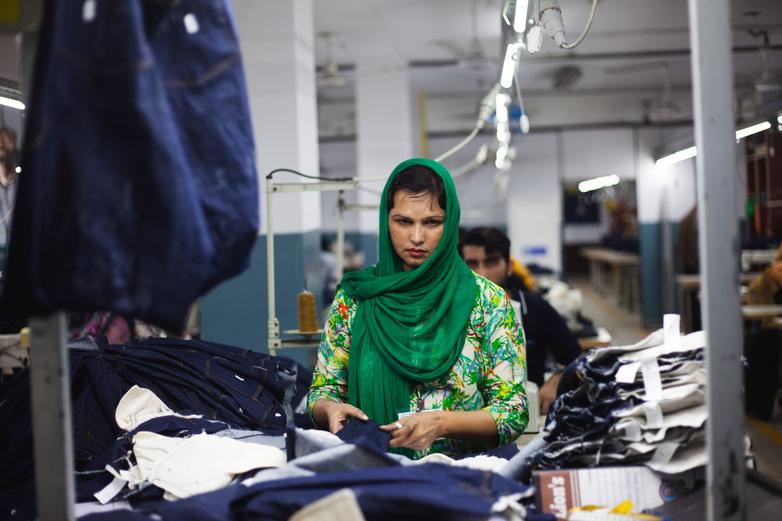Context
The textile and fashion industry is Pakistan's most important industry. It contributes approximately 8.5 per cent to the country's gross domestic product and 54 per cent of exports. Some 15 million people (around 25 per cent of the workforce) are employed in this sector. Productivity is low compared to other countries in the region and there has been little initiative for socially fair and environmentally friendly growth. Large quantities of water, chemicals and energy are consumed in production. For the largely informal workforce, working conditions are characterised by poor occupational safety, low wages, lack of co-determination and lack of dialogue. The economic potential of women is hardly utilised, while labour and environmental legislation is barely enforced. The private sector is virtually unaware of its responsibility for improving working conditions and the associated competitive potential. At the same time, demand from international buyers for textiles from fair and environmentally friendly production is increasing. Pakistan's textile and fashion industry needs major modernisation to address these issues.


